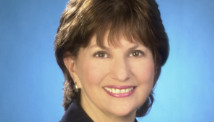Updated 6:40 p.m. ET
A "stubborn" fever that kept former President George H.W. Bush in a hospital over Christmas has gotten worse, and doctors have put him on a liquids-only diet, his spokesman said Wednesday, describing Bush's condition as guarded to CBS News.
Jim McGrath, Bush's spokesman in Houston, had said earlier in the day that the fever had gone away, but he later corrected himself.
"It's an elevated fever, so it's actually gone up in the last day or two," McGrath told The Associated Press. "It's a stubborn fever that won't go away."
"Following a series of setbacks including a persistent fever, President Bush was admitted to the intensive care unit at Methodist Hospital on Sunday where he remains in guarded condition," McGrath said in an emailed statement. "Doctors at Methodist continue to be cautiously optimistic about the current course of treatment. The President is alert and conversing with medical staff, and is surrounded by family."
Doctors at Methodist Hospital in Houston have run tests and are treating the fever with Tylenol, but they still haven't nailed down a cause, McGrath said. Doctors also have put Bush on a liquid diet, though McGrath could not say why.
The bronchitis-like cough that initially brought Bush to the hospital on Nov. 23 has improved, McGrath said. The 88-year-old is now coughing about once a day, he said.
Bush was visited on Christmas by his wife, Barbara, his son, Neil, and Neil's wife, Maria, and a grandson, McGrath said. Bush's daughter, Dorothy, will arrive Wednesday in Houston from Bethesda, Md. The 41st president has also been visited twice by his sons, George W. Bush, the 43rd president, and Jeb Bush, former governor of Florida.
Bush and his wife live in Houston during the winter and spend their summers at a home in Kennebunkport, Maine.
The former president was a naval aviator in World War II - at one point the youngest in the Navy - and was shot down over the Pacific. He achieved notoriety in retirement for skydiving on at least three of his birthdays since leaving the White House in 1992.















